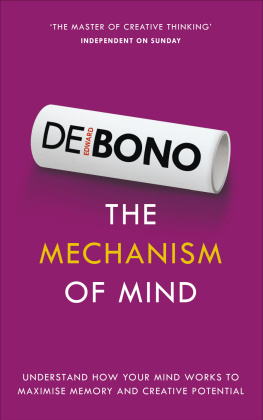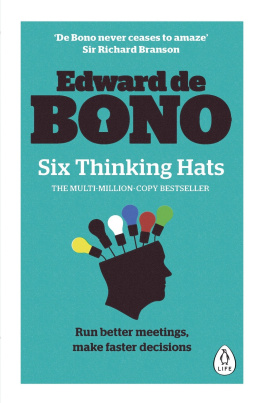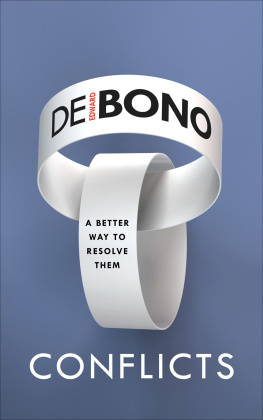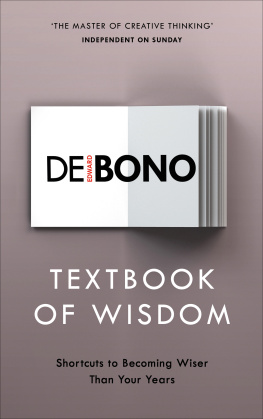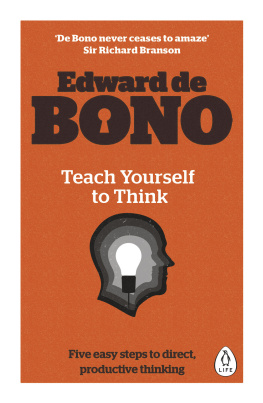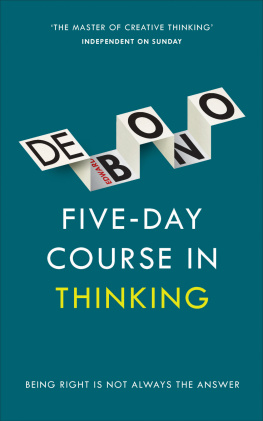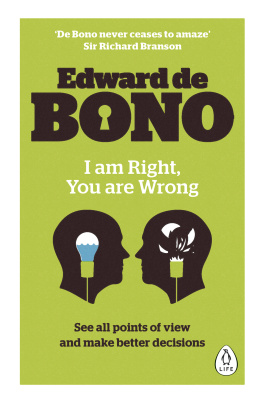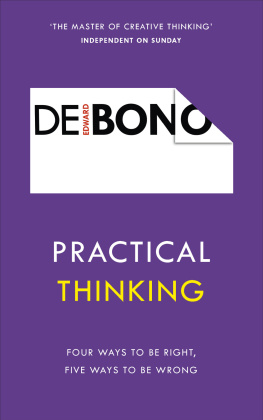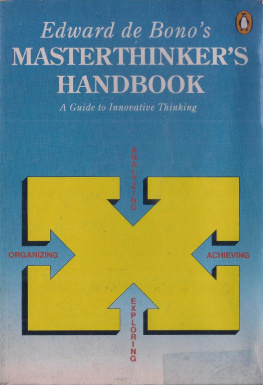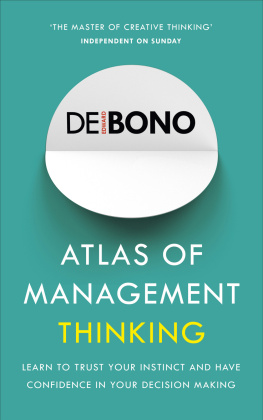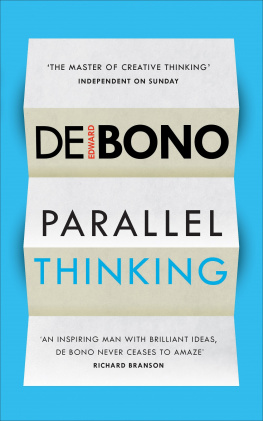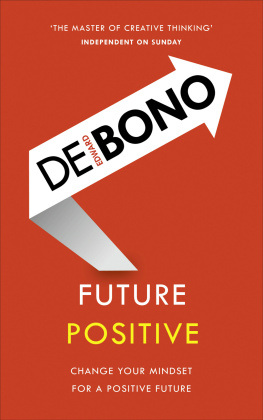Edward de Bono - Flowscapes
Here you can read online Edward de Bono - Flowscapes full text of the book (entire story) in english for free. Download pdf and epub, get meaning, cover and reviews about this ebook. year: 2021, publisher: Lulu.com, genre: Romance novel. Description of the work, (preface) as well as reviews are available. Best literature library LitArk.com created for fans of good reading and offers a wide selection of genres:
Romance novel
Science fiction
Adventure
Detective
Science
History
Home and family
Prose
Art
Politics
Computer
Non-fiction
Religion
Business
Children
Humor
Choose a favorite category and find really read worthwhile books. Enjoy immersion in the world of imagination, feel the emotions of the characters or learn something new for yourself, make an fascinating discovery.

- Book:Flowscapes
- Author:
- Publisher:Lulu.com
- Genre:
- Year:2021
- Rating:5 / 5
- Favourites:Add to favourites
- Your mark:
- 100
- 1
- 2
- 3
- 4
- 5
Flowscapes: summary, description and annotation
We offer to read an annotation, description, summary or preface (depends on what the author of the book "Flowscapes" wrote himself). If you haven't found the necessary information about the book — write in the comments, we will try to find it.
Flowscapes — read online for free the complete book (whole text) full work
Below is the text of the book, divided by pages. System saving the place of the last page read, allows you to conveniently read the book "Flowscapes" online for free, without having to search again every time where you left off. Put a bookmark, and you can go to the page where you finished reading at any time.
Font size:
Interval:
Bookmark:
Flowscapes
Water Logic, abridged version
Edward de Bono
Caspar de Bono
The mind can see only what it is prepared to see.
The analysis of data does not, by itself, produce ideas. The analysis of data can only allow us to select from existing ideas. Hypotheses, speculation, provocation and model building, allow us to see the world differently. The creation of these frameworks of possibility is a perceptual process.
Dr Edward de Bono
Flowscapes
Water Logic, abridged version
Originally by Edward de Bono
Adapted by Caspar de Bono

2020
Copyright 2020 Edward de Bono Ltd
All rights reserved. This book or any portion thereof may not be reproduced or used in any manner whatsoever without the express written permission of the publisher except for the use of brief quotations in a book review or scholarly journal.
First Printing: 2020
eBook ISBN 978-1-4717-8585-6
Edward de Bono Ltd t/a de Bono.
Registered office: First Floor, Templeback, 10 Temple Back, Bristol, BS1 6FL.
Registered in England.
Registered number: 11433091.
https://www.debono.com
Email:
This book is dedicated to my father, Edward de Bono. It contains his ideas about understanding and changing perception. It provides a practical framework for managing your attention. I have created it as an abridged version of Water Logic, first published 1993. This book places an emphasis on the application of the flowscape technique. I hope you will use it to understand and change your perception.
Caspar de Bono
Contents
We are taught that sound logic will lead to better thinking and positive outcomes. However, logical reasoning is entirely dependent on the premise, in other words, how the situation is framed. Perception precedes logic. Conflict resolution, problem solving and our ability to create opportunities are dependent on understanding and changing perceptions.
Rock logic is the logic of critical thinking. It is linear and searches for truth. It is about being correct. Unlike rock logic, perception is determined by the self-organising mechanism of the mind. It is nonlinear and is often incorrect. Therefore, it requires a different description. Water logic is the logic of perception and precedes rock logic. Water logic is concerned with movement.
How can you visualise your thinking as clearly as you might view a landscape from an airplane? Flowscapes are designed to draw attention to the shape of your perception. They prompt you to notice how your thinking is influenced. An exploration of your perception reveals new ways to improve your thinking and the situations that your thinking influences.

The purpose of drawing a flowscape is to look at it. You should be able to look at a flowscape in the same way that a geographer, farmer or developer looks at a landscape. Flowscapes allow you to note, to comment, to identify points of interest or significance, to recognise areas that require action and decide where attention is best focused.
We create a flowscape to understand our perception. This is a preliminary and separate step to analysis and problem-solving. It is a map of attention. Once the flowscape has been created, it serves as a reference for where to focus and change thinking. If you are impatient and set out to use the flowscape as a one-stage problem-solving tool, you will not reflect your perception of the situation but only what you wish to do. You risk imposing an expected or correct narrative onto the situation, rather than your underlying perceptions.
There are two distinct stages when using a flowscape. The first is to map your perception and the second is to use that map as a reference to change your thinking. This book will lead you through both stages.
Johnny was a young boy who lived in Australia. One day, his friends offered him a choice between a one-dollar coin and a two-dollar coin. In Australia, the one-dollar coin is considerably larger than the two-dollar coin. Johnny took the one-dollar coin. His friends laughed and claimed Johnny was stupid because he did not yet know that the smaller coin was worth twice as much as the bigger coin. Whenever they were bored, they would repeat the exercise. Johnny never seemed to learn.
One day, a bystander felt sorry for Johnny and explained that the smaller coin was worth twice as much as the larger coin.
Johnny listened politely. He then said, Yes, I do know that. But how many times would they have offered me the coins if I had taken the two-dollar coin the first time?
A computer programmed to evaluate this situation would determine which of the two coins is the most valuable. It would therefore select the smaller, two-dollar coin. Johnnys thinking was not based on what 'is' but on where 'to' . In other words, 'What will this lead to?' 'What will happen if I take the one-dollar coin?' Traditional rock logic is based on 'is'. It is the logic of analysis and categorisation. The logic of perception, or water logic, is based on 'to'.
Rock logic is the critical search for 'truth'. It is comprised of argument and adversarial exploration. These thinking habits can be traced back to Socrates, Plato and Aristotle. After the Dark Ages, the rediscovery of this classical thinking was a breath of fresh air. These methods were used by the Catholic Church to provide a weapon against heresy and by humanist thinkers to provide an escape from church dogma. So, this became the established thinking of Western civilisation.
Traditional Western thinking sought to move away from the vagueness and instability of perception and to establish certainty and consistency. This has been done reasonably well. Yet, if our perceptions are faulty, then processing those faulty perceptions perfectly can only give answers that are wrong. Sometimes these answers are even dangerous. For example, both sides in any war, conflict or disagreement always have 'logic' on their side. While this is true, it is a logic that serves their perception. This book is about the water logic of perception.
Perception can be defined as the way the brain organises information received from the outside world via the senses. The inner world of the mind is different from the outside world that surrounds us. Traditionally, Western culture has tried to move away from perception and reach the 'truth' of reality. Yet, perception is just as real. A child's terror at a moving curtain in the night is very real. Individual perceptions are unique and may only overlap in part with the external world.
It is no wonder that ancient thinkers considered it a magnificent feat to move away from the highly subjective notions of perception towards truths and absolutes. These ideas could be checked and would hold true for everyone.
When making a table, you could guess the sizes of the required pieces and simply cut them up. However, it would be more effective to measure the required pieces. If measured, they would be more likely to fit together, and the table legs would be the same height. Measurement is a mechanism for consistency. We take it for granted but it is a wonderful concept. Mathematics is another method for managing information. Through mathematics, we translate the world into symbols and relationships. Once this is done, we enter the 'closed universe of mathematics with its own rules. We play by those rules rigorously. Then, we translate the result back into the real world. This method works well provided the mathematics are appropriate and the translation is valid. Socrates, Plato and Aristotle set out to apply this method to language. Words were to have specific definitions and become as real, concrete and objective as measurements. In addition, there was to be a rigorous game with rules to tell us how to put words together and how to reason. This game was largely based on the identity of an object. An object either 'is' or 'is not' something else. The principle of contradiction states that something cannot 'be' and 'not be' simultaneously. From this principle, Western systems of language, logic, argument and critical thinking were developed.
Next pageFont size:
Interval:
Bookmark:
Similar books «Flowscapes»
Look at similar books to Flowscapes. We have selected literature similar in name and meaning in the hope of providing readers with more options to find new, interesting, not yet read works.
Discussion, reviews of the book Flowscapes and just readers' own opinions. Leave your comments, write what you think about the work, its meaning or the main characters. Specify what exactly you liked and what you didn't like, and why you think so.


